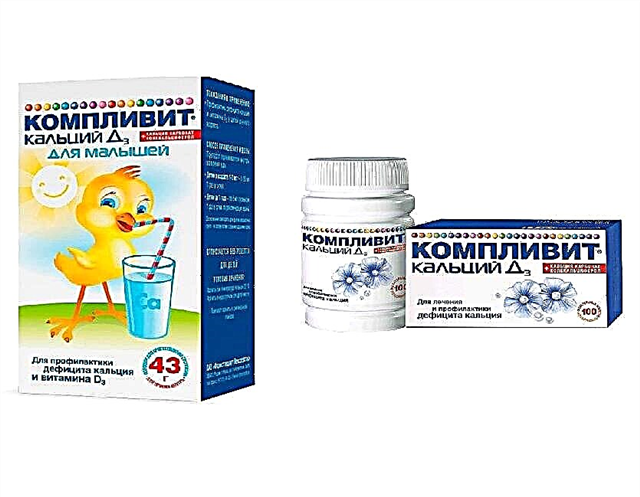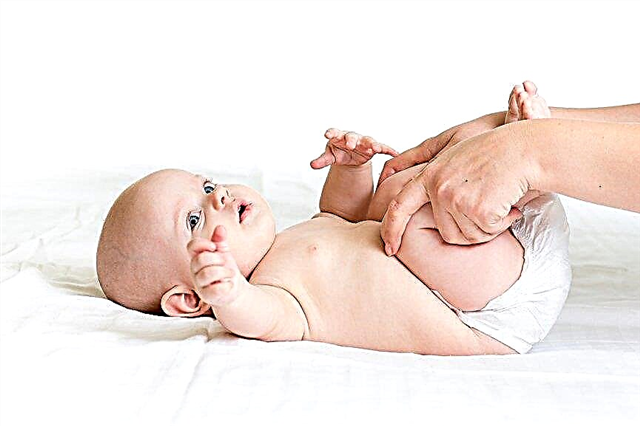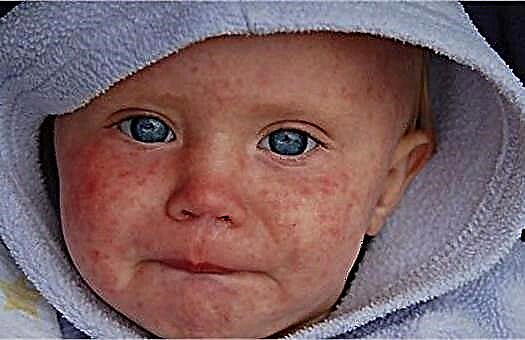
Many different studies are done to assess the normal course of pregnancy. The complex of such prenatal diagnostics is called screening. This article will help expectant mothers to understand what biochemical screening is, and when it is performed.
What is screening for?
During pregnancy, it is very important to assess not only the condition of the expectant mother, but also her baby. For such a comprehensive assessment, doctors came up with screening. This is a complex of various diagnostic measures that allow you to identify various pathologies of pregnancy at the earliest stages of their formation.

The first biochemical screening is performed in the 1st trimester of pregnancy. Early gestation is very important. It is at this time that all vital organs begin to be laid. A variety of reasons can lead to the development of pathologies in this period.
To identify such deviations in pregnant women and allows biochemical screening.

It should be noted that the introduction of prenatal screening in our country has become no coincidence. Such a measure allowed to reduce maternal mortality several times. Also, screening can reduce the rate of intrauterine fetal death at different stages of its development. These simple and effective tests help to identify "dumb" diseases of internal organs in the expectant mother, thereby improving the prognosis of the course of pregnancy.
It is no coincidence that this screening was named "biochemical". Research requires biochemical blood serum. All tests are absolutely safe and painless. The accuracy of the result obtained largely depends on how well the manipulation of blood sampling was carried out, as well as on the diagnostic devices that are in the laboratory.

In some cases, and genetic screening. It allows you to identify various chromosomal diseases that have family inheritance. This screening is very important. It helps to timely identify various severe genetic diseases even during the development of the child inside the womb.

The next, second biochemical screening is carried out in the 2nd trimester of pregnancy. In this case, other diseases of intrauterine development of the fetus are excluded. In this case, the list of analyzes changes slightly. This is due to various pathologies that arise in different periods of pregnancy.

The third screening in the last trimester of pregnancy is done for certain medical reasons. Many mothers begin to get very worried before undergoing each of these diagnostic complexes. Don't panic. Expectant mothers should perceive such a study as a necessary diagnosis, important for a good pregnancy.
All biochemical studies can not cause any dangerous effects for pregnant women.
A trimester is a three-month gestation period. Also, this time period is often referred to as 12 obstetric weeks. Such medical terms are used mainly by obstetricians-gynecologists when they describe the duration of pregnancy.

Doctors recommend screening for absolutely all pregnant women. It is especially important to pass these studies to the following decreed groups:
expectant mothers who conceived a baby at the age of over 35;
pregnant women with a high predisposition to spontaneous miscarriages or a history of frequent abortions;
expectant mothers who have had viral or bacterial infections in the first 2 weeks after conceiving a child;
pregnant women who take immunosuppressive or hormonal drugs against the background of their existing pathologies;
expectant mothers who have cases of genetic or chromosomal diseases in their family;
women who already have one or more babies who have signs of serious pathologies of the nervous or cardiovascular systems, including those suffering from congenital heart defects;
expectant mothers whose doctors have identified clinical signs of a "frozen" pregnancy.
The date for the first biochemical screening in most women falls within for the period from 11 to 14 obstetric weeks. Doctors believe that doing this research earlier does not make any sense. Experts believe that previously obtained results are not reliable and correct. It is almost impossible to establish any pathology in this case.

12 weeks is the time when the fetal period of development of the unborn baby begins. At this time, the child's organ systems are already beginning to differentiate. From this point on, a very small embryo becomes a fetus. It already looks more like an adult human body in its functioning.

What are these analyzes?
One of the most important indicators, which is assessed in the 1st trimester of pregnancy, is the b - subunit of human chorionic gonadotropin or hCG. Doctors also evaluate another criterion, which is called PAPP - A. This is a plasma peptide associated with bearing a baby.
With the help of PAPP-A, various genetic diseases can be evaluated. By its chemical structure, this substance is a protein or peptide. It is synthesized by the placenta. This active substance is perfectly manifested precisely at 12-13 weeks.
It is especially important to investigate PAPP-A for pregnant women who have cytomegalovirus or hepatitis infection in their blood.
It is also very important to determine this peptide for expectant mothers who, while carrying a baby, have already turned 35 and older.

Training
It is still worth preparing before carrying out biochemical screening. Correct preparation will lead to a more reliable and accurate result. Doctors warn that biochemical tests should be taken strictly on an empty stomach. It is best to do this research in the morning.
In order not to get an overestimated glucose level in the blood test, the expectant mother do not eat a lot of sweets on the eve of the study. For some patients, gynecologists also recommend drinking enough fluids.

It is not worth changing your usual diet on the eve of biochemical screening. In order not to get a distortion of the result, dinner on the eve of the test should be as light as possible. All fatty and fried foods should be excluded. Such food can lead to high blood cholesterol levels.
In order to reduce allergic manifestations, also do not eat citrus fruits, nuts, chocolate and seafood on the eve of the biochemical test. These foods should also not be eaten by women who have no history of allergies. During pregnancy, allergic reactions may appear for the first time.
A lot of stress can also lead to the wrong result. The first biochemical screening is a very exciting time. However, a pregnant woman should not worry and panic. In order to reduce anxiety and suspiciousness, on the eve of the diagnostic complex, the expectant mother can go to a park or square and just take a walk in the fresh air. This will help the pregnant woman calm down and recover.

Standards
The level of active PAPP-A peptide largely depends on the week of the study. At 12 weeks, the values of this indicator range from 0.8 to 4.76 mU / ml. At 13 weeks, this laboratory criterion already rises to 1.03 - 6.02 mU / ml.
HCG is a basic indicator of pregnancy. The initial weeks of pregnancy are accompanied by a gradual increase in this indicator. Only by the end of the 36th week of carrying a baby, hCG decreases. This physiological feature is necessary for labor to occur at the end of the third trimester.
Already by the 8th obstetric week, the average concentration of hCG in the blood is 65,000. An excess of this indicator may indicate not only the presence of some pathology in the female body, but also that the expectant mother will soon have twins or triplets.
Also, a similar situation develops if a pregnant woman has diabetes mellitus.

Decoding the results
PAPP - A is a very important indicator of the normal course of pregnancy. If the obtained values of this laboratory criterion are within the normal range, then you should not worry. Doctors cannot make any conclusion based on analysis alone.
If this indicator significantly exceeds the norm, then this is not yet a reason for a diagnosis of a genetic disease. In this case, gynecologists prescribe additional studies for the pregnant woman. PAPP-A values significantly exceed normal values in Down syndrome. Also, an excess of this indicator occurs on the eve of a spontaneous abortion or spontaneous miscarriage. An increase in PAPP - A is a very important indication for ultrasound.

Essential excess hCG also occurs with possible genetic abnormalities... Thus, Edwards syndrome can also appear. Also, exceeding this laboratory criterion in combination with other indicators can be with toxicosis. An increase in hCG also occurs with placental insufficiency. In this case, to exclude this condition, an ultrasound scan is required.
To assess the risk of occurrence and development of genetic diseases, doctors use a special PRISCA scale. In his conclusion, the doctor must indicate the degree of risk of a chromosomal abnormality. The coefficient must also be indicated Multiple of median (MoM). It is calculated using a special computer program, where the doctor enters the initial obtained values of biochemical tests.

MoM in the range from 0.5 to 2.5 is considered the norm. To calculate this indicator, not only the test results obtained are taken into account, but also belonging to a particular race, as well as the age of the pregnant woman and the presence of concomitant diseases of internal organs.
Mothers who have undergone biochemical screening are very ambiguous about such a diagnosis. Some of them note that the results obtained were inaccurate and they had to repeat the study several times.
Many mothers believe that biochemical screening without ultrasound is absolutely unjustified.


Screening can be done in a free clinic. In this case, the medical institution must have the necessary material and technical base and a good laboratory. Ordinary women's clinics cannot boast of this. This leads to the fact that future moms turn to private centers.
Comprehensive screening costs vary widely in these settings. On average, it ranges from 6,000 to 10,000 rubles. If a woman has any comorbidities, then the cost of biochemical screening may be higher. Whether or not to undergo such a complex of studies in a private clinic is decided for each expectant mother individually.

For more on what trimester screening includes, see below.



